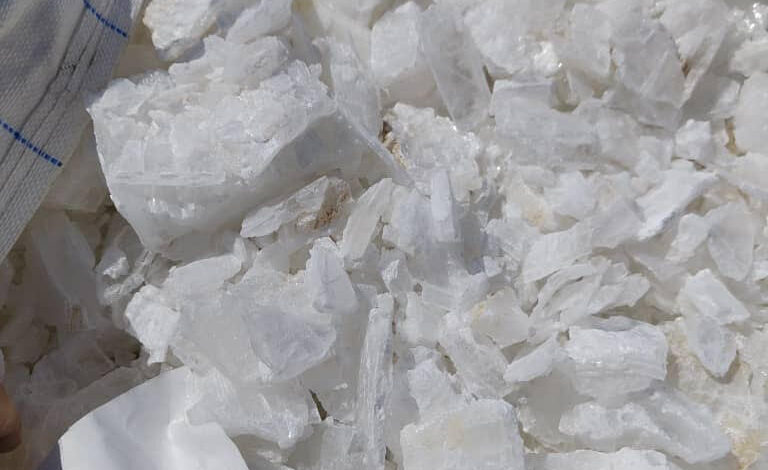A Versatile Mineral for Modern Manufacturing
Gypsum, a soft sulfate mineral composed of calcium sulfate dihydrate (CaSO₄·2H₂O), is one of the most widely used materials in various industrial applications. Its natural abundance, ease of processing, and chemical stability make it an essential raw material across sectors including construction, agriculture, cement production, and more. As industries continue to prioritize cost-effective and sustainable materials, gypsum’s relevance continues to grow.

Why Gypsum Is an Industrial Essential
Gypsum offers numerous properties that contribute to its wide adoption in industry. For instance, it is fire-resistant, non-toxic, lightweight, and easy to mold. Because of these characteristics, manufacturers and builders often prefer gypsum over synthetic alternatives.
Key Benefits of Using Gypsum in Industry
-
Abundant and economical: Found naturally and easy to process
-
Non-combustible: Enhances fire resistance in construction
-
Excellent molding ability: Ideal for panels, plasters, and molds
-
Environmentally friendly: Fully recyclable and non-toxic
Major Industrial Applications of Gypsum
1. Construction and Drywall Manufacturing
Gypsum is best known for its role in drywall and plasterboard production. It is calcined to form plaster of Paris and then rehydrated to create strong, lightweight panels. As a result, gypsum boards are widely used for interior walls, ceilings, and partitions in both residential and commercial buildings. Additionally, gypsum provides sound insulation and fire resistance, making buildings safer and more energy-efficient.
2. Cement and Concrete Production
In cement manufacturing, gypsum is added to control the setting time of Portland cement. Without gypsum, cement would harden too quickly, making it difficult to work with. Furthermore, it improves the final strength and durability of the concrete. This application is critical for infrastructure, roads, and large-scale construction projects.
3. Agriculture and Soil Conditioning
In agriculture, gypsum acts as a soil amendment and conditioner. It improves soil structure, enhances water infiltration, and provides essential calcium and sulfur nutrients to plants. Moreover, gypsum reduces soil compaction and helps reclaim sodic and saline soils, leading to improved crop yields.
4. Molds and Casting in Ceramics
The ceramics and dental industries use gypsum for making precision molds and casts. Because of its smooth texture and excellent detail reproduction, it is ideal for creating intricate patterns and models. Consequently, it’s a preferred choice in both industrial ceramics and medical casting.
5. Industrial and Decorative Plasters
Gypsum is also used in the production of sculptural and architectural plasters. These plasters are applied in decorative molding, ceiling medallions, and artistic installations. Not only does gypsum provide aesthetic flexibility, but it also maintains structural integrity over time.
Global Demand and Market Outlook
As sustainable construction and agriculture practices gain momentum, the global demand for gypsum continues to rise. Emerging economies are investing in infrastructure, and modern farming techniques increasingly rely on gypsum to improve soil health. In addition, innovations in gypsum recycling support green building certifications worldwide.
Why Choose Our Gypsum Products?
We provide high-quality natural and synthetic gypsum tailored to your specific industry requirements. Whether you need construction-grade gypsum, agricultural material, or specialty plasters, we ensure consistent performance, purity, and availability.
-
Bulk supply with global distribution
-
Custom particle sizes and formulations
-
Technical support and compliance documentation
Contact Us for Premium Gypsum Solutions
Ready to source reliable gypsum for your operations? Contact us today for pricing, product samples, or technical consultation. Let our gypsum help your projects achieve performance, sustainability, and cost-efficiency—naturally.

